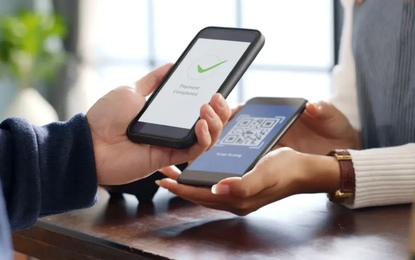

The third phase will allow Pix users to make payments outside of their bank’s platform, making digital purchases easier.
The transformation of payment methods and the discouragement of cash is the backdrop for the third phase of Open Banking in Brazil, now with a new start date for the end of October.
Brazil is the Latin American nation showing the greatest progress in open finance and plans to have its platform fully deployed before the end of the year.
This will allow customers to discreetly share their information with financial institutions regulated by the Central Bank of Brazil (BCB). The rollout is also expected to open up business opportunities for banks and fintechs while improving the user experience.
The third stage, scheduled for October 29, is expected to see the start of Pix payment transactions initiated by non-financial institutions, which will allow payments to be made outside the platform of the user’s bank. In other words, we’re at the start of operability.
Currently, customers can use Pix to make payments on websites or via apps, social media, or messaging. You only need to copy the data from a QR code, exit the platform and then paste the information into your bank’s app to complete the transaction.
However, the new payment initiator means this series of steps will no longer be necessary, as long as the online store has joined the service. In the same application, a screen from the customer’s financial institution will be enabled in the payment section, which will request an authentication from the user to complete the purchase.
This will make Pix much simpler to use for digital payments, with less friction and without the need to leave the purchase process.
The fourth and final stage is expected to begin on December 15.
But the Open Banking revolution hasn’t come about of its own accord. It responds to a series of factors that have evolved in recent years in Brazil, such as greater connectivity through the use of mobile devices as well as the high level of banking penetration, which has reached 70%, according to data through 2020.
But that’s not all. The pandemic also brought with it changes in clients’ financial habits, spurring changes in the use of cash, which declined 20% in last year.
At the same time, Brazil has become the Latin American country with the most widespread use of cellphones for making online purchases, second only to Colombia, according to data from Accenture.
In addition, in November 2020, the Central Bank implemented the Instant Payment System (SPI). This network connects different payment service providers in Brazil, and this is where the Pix concept flourishes.
Pix carries the banner of interoperability and a BCB-led neutrality endorsement.
With this solution, Brazil can ensure its entry into an open payment system, without discrimination and easily deployable to all sorts of people, regardless of what type of financial account they hold.
The free nature of the system also makes it highly attractive to users, increasing access to digital payments and democratizing finance for all. While participating financial institutions will be able to charge a fee for each transaction, the BCB has already warned that it will maintain a vigilant stance.
Despite the favorable context, Open Banking faces challenges that have yet to be addressed, in terms of trust, security and user experience.
However, as we have seen with the growth of digital payments in Brazil and the players’ drive to raise UX standards in their development processes, there are also high expectations for overcoming these challenges.
Consequently, entities will need to continue with technological acceleration and meeting the emerging needs of digital users.
Another challenge for banks is the implementation of Open Banking APIs to provide data to payment initiators while retailers need authorization to be a payment transaction processor (ITP in Portuguese).
Speed will be key in such an environment,as the faster companies adopt PIX and APIs, the quicker they’ll generate engagement with their customers.
Usability will also become more relevant, especially in the authentication phase, where the customer won’t want to leave the payment interface to verify their identity and will seek a frictionless experience, such as facial biometric authentication.
With Pix and the ability to share data, Brazil will have two major tools with which to spur flexibility and greater access to financial services.
Accordingly, open banking is expected to generate an array of business opportunities for the industry as well as increased competition that will encourage development. The successful institutions will be those that focus on customers.
And it won’t just be about using new features to create better products and services but also customizing solutions and the experience.
Join our online community and stay up to date with the latest news from the world of technology.